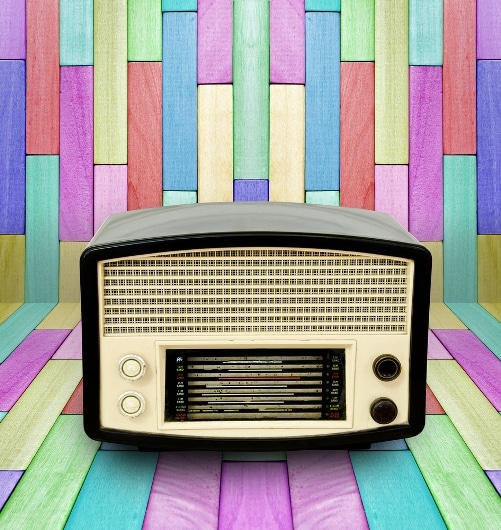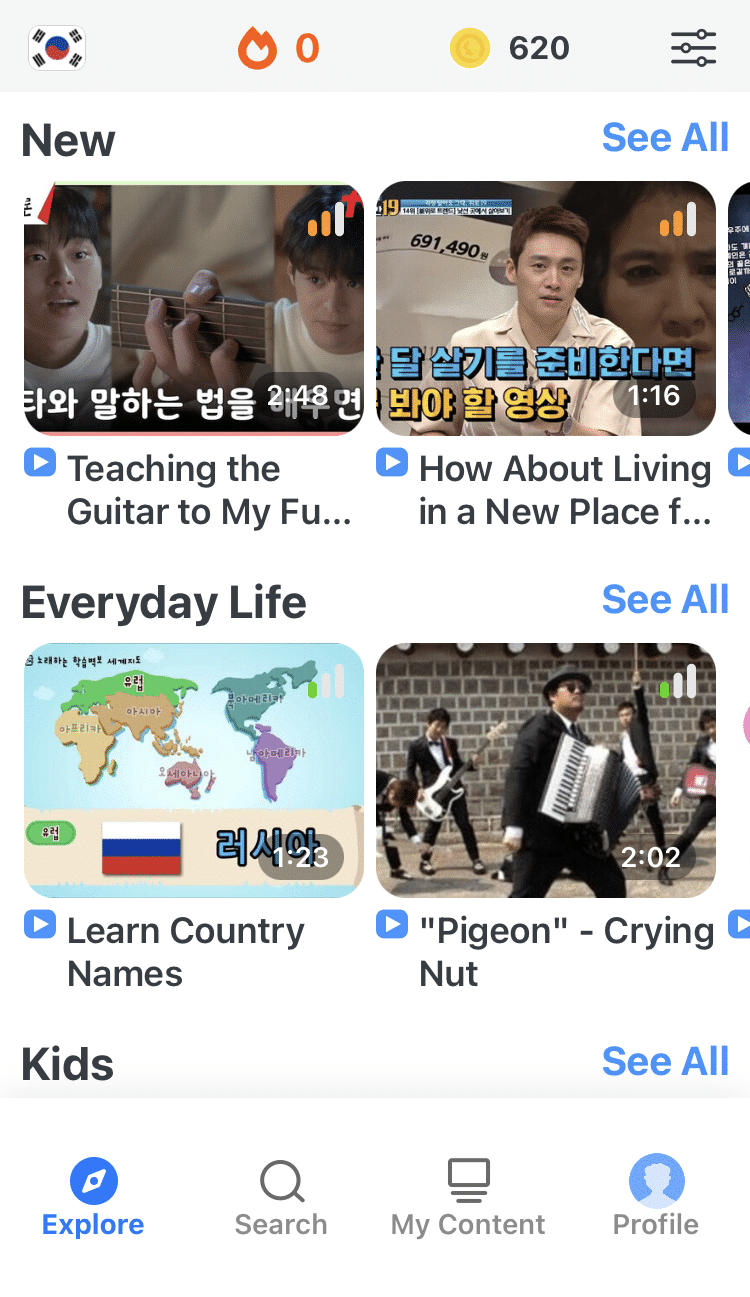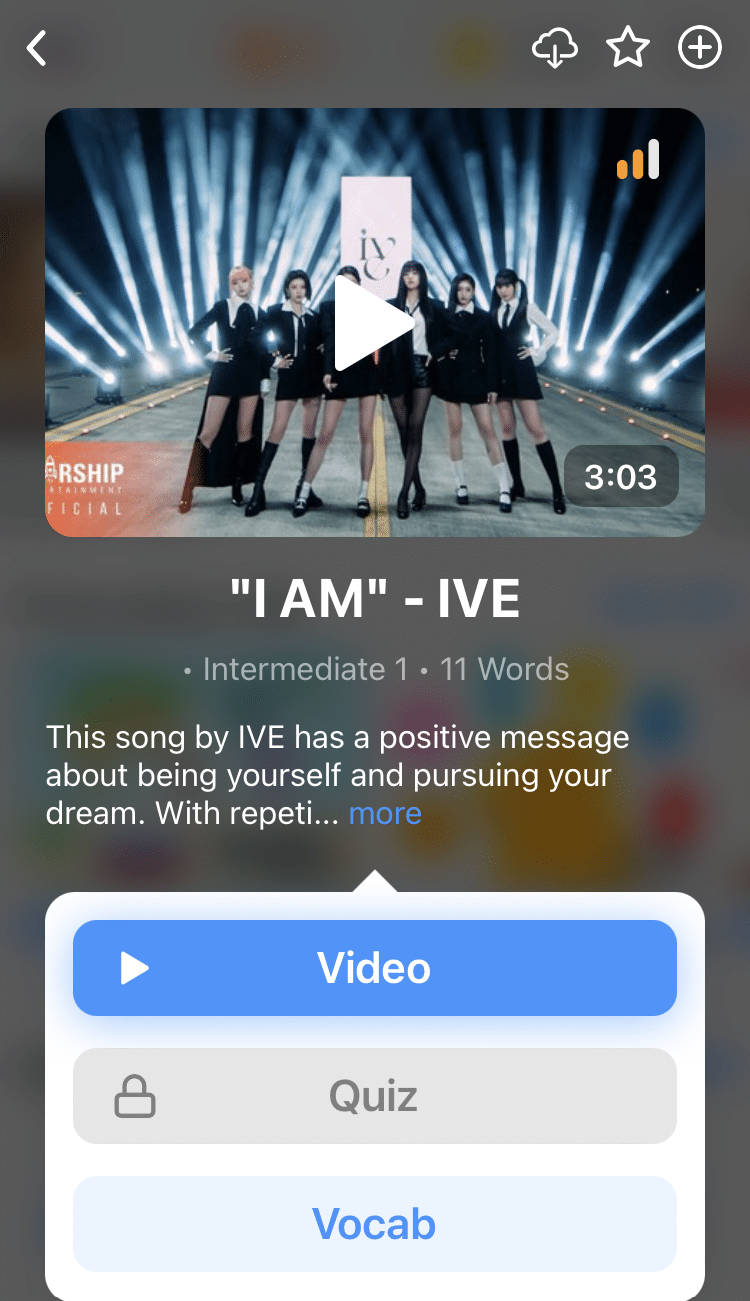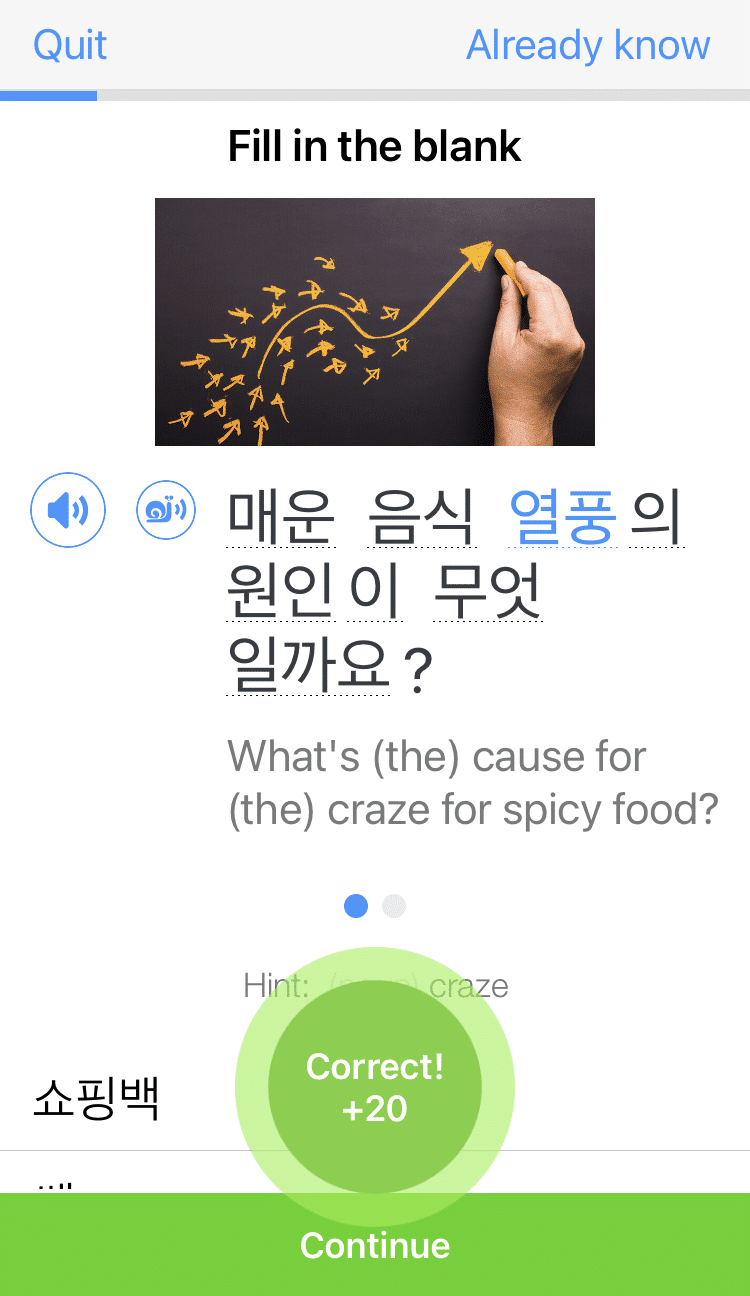
How to Learn Korean with Radio [7 Tips]
Looking for a fantastic way to improve your Korean vocabulary and listening skills?
Want to immerse yourself in Korean society without the cost of an expensive plane ticket?
If so, you’ll love Korean radio.
It’s a colorful, exciting tool for learning.
Aside from making you more sensitive to the richness and nuances of the Korean language, it will help you start to understand Korean culture as well.
Not sure how to go about it?
Wondering which radio stations you should opt for to maximize your learning?
Not a problem! We’ve gathered together all the essential tips as well as a roster of must-listen Korean radio stations, so you can get started right away.
Download: This blog post is available as a convenient and portable PDF that you can take anywhere. Click here to get a copy. (Download)
Learn Korean with Radio: 7 Hip Tips for Listening Your Way to Fluency
1. Track down Korean radio stations that you find enjoyable and relevant
It goes without saying, but if you opt for stations that you find boring or too difficult, you won’t commit to listening practice. The best way to go about it is to try different stations and settle on some that you like. And it doesn’t matter if you’re not in Korea. All you need to get started is an Internet connection, and you can stream your favorite stations online.
The first step to finding a Korean radio station is to ask yourself whether you want to focus on global or peninsula-related content. KBS World, for example, which focuses on international content, may be easier to understand if you already follow the news in your native language. You may be able to quickly guess what is being discussed from major headlines. Opting for a domestic Korean news channel such as KBS Radio, however, while it may be a bit more challenging, has the advantage of acquainting you with ongoing issues in Korea.
Listening to a global Korean radio station may also give you a Korean perspective on global issues. If you’re interested in spirituality, listening to Far East Broadcasting Company, which discusses global Christian news, may help you to understand how Koreans relate to common international religious issues. However, you may want to complement it with CBS (Christian Broadcasting System) for a closer view of religion in Korean society today.
Another way to find more authentic Korean listening content is on FluentU.
FluentU takes authentic videos—like music videos, movie trailers, news and inspiring talks—and turns them into personalized language learning lessons. You can try FluentU for free for 2 weeks. Check out the website or download the iOS app or Android app. P.S. Click here to take advantage of our current sale! (Expires at the end of this month.)
2. Mix it up: Listen to a variety of Korean radio stations
It’s important to listen to a variety of Korean radio stations to maximize learning. Not only will it stimulate your ear to listen to a variety of presenters, each with their own mannerisms and rhythms, but you’ll acquire a broad range of vocabulary on a large range of themes. Eventually, you should have the tools to handle any subject.
Korean stations are known for different reasons. Here are some fantastic choices worth streaming:
- RadioKorea: This is a popular radio station targeted at 재미 교포 (Koreans living in the US). In addition to learning about the motherland from the perspective of a Korean expat, this is the place to turn to for discovering how Korean immigrants feel about life in America and for acquiring the vocabulary to discuss American society in Korean. Subjects covered are extremely varied and complete, and range from expat news to politics, music and more.
- MBC (Munhwa Broadcasting Corporation): Looking for something a bit less highbrow? Head over to MBC for the latest news and gossip on Korean entertainment and celebrities. In addition to music programs ranging from K-pop to Korean film music, you’ll discover accessible programs and podcasts on health and Korean society, ideal if you’re just getting started with Korean radio.
- SBS (Seoul Broadcasting System): If you want something a bit more feisty, opt for SBS. This is another great station for learning casual, everyday Korean conversation. Programs range in subject matter from comedy to romance, so you’ll be able to acquire specific terminology about Korean relationship issues.
- YTN (Your True Network): Are you ready for a more challenging Korean radio station? If so, don’t hesitate to try YTN for coverage of global and domestic politics as well as economy news, 24/7. The matters discussed here are more serious than on the channels listed above, and you’ll acquire plenty of listening practice and advanced vocabulary on topical subjects. News shows are very scripted, which means that radio hosts tend to read from their notes rather than speak naturally, and they read fast. So be sure to pay close attention to what they say, and don’t get discouraged if you don’t understand everything right away. It takes time!
3. Be regular: Listen to Korean radio every day
That’s right. It’s not enough just to do the work; what matters most is your diligence. Good news, however, if you thought I was going to ask for too much: Your sessions don’t have to be long. Listening to Korean radio for just 20 minutes a day will get better results than listening for an hour and a half once a week!
That’s because regularity helps to facilitate memorization through passive learning. It also allows you to immerse yourself in the language every day, so you’re constantly stimulated in Korean. Aim for a fixed time during the day to make sure you won’t forget your session!
4. Be proactive: Take notes!
There is an art to taking notes. Create specific categories, such as “Korean food,” “Religion” or “Gangnam real estate,” depending on the programs and stations you listen to.
Then, highlight the words and structures you encounter most frequently. If possible, write down full sentences that you heard during your streaming. This will help you to create word associations and remember the vocabulary more easily.
If you can’t remember a word or phrase or write it down accurately, search for it on Naver’s very helpful bilingual dictionary. Results generated are usually followed with multiple examples. Alternatively, download a Korean dictionary app.
The goal here is to make sure that you’ll never have to look up those words ever again! Review your notes after every session, daily, until you remember them. Devote one day per week to reviewing your notes from the previous week. Don’t hesitate to create flashcards and scatter the ones that are most important to you throughout your home. This may seem extreme, but it works!
5. Opt for simple topics and shows at first
Korean radio stations aim to please a variety of audiences interested in diverse subjects, so you can rest assured that you’ll find something for you. If you’re just getting started, opt for lifestyle topics (such as health, society or food) and interviews.
The key in the beginning is to avoid scripted shows where hosts read rather than speak naturally. “아침마당” (Morning Show) on Radio Korea is a great choice in this respect because it covers a bit of everything, from major headlines to lifestyle, in an accessible, unscripted manner.
Another good idea is to opt for formats that focus on conversation, such as interviews and talk shows. “박준형, 정경미의 2시 만세” (2pm with Joon-hyeong Park and Kyeong-mi Jeong) on MBC is another great option for gaining familiarity with Korean dialogues because guests, typically K-pop stars, join the show every day.
6. Head over to the radio station’s site for more clues
Korean radio stations usually have a web presence, and you should regularly check out their sites for extra help. They can help you to understand the context of the program you’re listening to more easily.
Often, they will archive certain shows and make them available to you for streaming. This means you can replay and focus on difficult portions of a program you had trouble understanding. Most of them also provide overall details about a show, typically found under “프로그램 소개” (Program Introduction), including its theme and subject of focus. You’ll also find more specific elements about shows hosted a certain day, such as their general outlines, matter discussed and invited guests.
7. Be persistent: Don’t give up!
Depending on your current level and how much listening practice you have had, listening to Korean radio may be hard in the beginning. But don’t give up! If you stick to this plan, you’ll make very rapid progress both in terms of your ability to make sense of the sounds you hear and to understand new vocabulary.
Likewise, if you find yourself needing to look up many words in the beginning, don’t despair if you don’t take proper note of the spelling of all these words. What matters most is that you persist. As your skills build up and you encounter these words again, you’ll be more capable of writing them down correctly.
The world of learning Korean with radio is open to you now!
All you need to do is start streaming some of the above options. And why not pair your radio listening with some delicious 우전 (Ujeon) tea and 약과 (yakkwa, sticky cookies), for a truly Korean feel?
Download: This blog post is available as a convenient and portable PDF that you can take anywhere. Click here to get a copy. (Download)
If you enjoyed this post, you're already halfway to having the time of your life learning Korean with FluentU!
FluentU makes it possible to learn with K-pop videos, funny commercials, entertaining web series and more. Just a quick look will give you an idea of the variety of FluentU videos on offer:
FluentU really takes the grunt work out of learning languages, leaving you with nothing but engaging, effective and efficient learning. It's already hand-picked the best videos for you (which are organized by level and topic), so all you have to do is simply choose any video that strikes your fancy to get started.
Each word in the interactive captions comes with a definition, audio, image, example sentences and more.
Access a complete interactive transcript of every video under the Dialogue tab, and easily review words and phrases from the video under Vocab.
You can use FluentU’s unique Quiz Mode to learn the vocabulary and phrases from the video through fun questions.
FluentU keeps track of what you're learning, and tells you exactly when it's time for review, giving you a 100% personalized experience.
Review sessions use video context to help embed the words in your memory.
Start using the FluentU website on your computer or tablet or, better yet, download the FluentU app from the iTunes or Google Play store. Click here to take advantage of our current sale! (Expires at the end of this month.)
And One More Thing...







